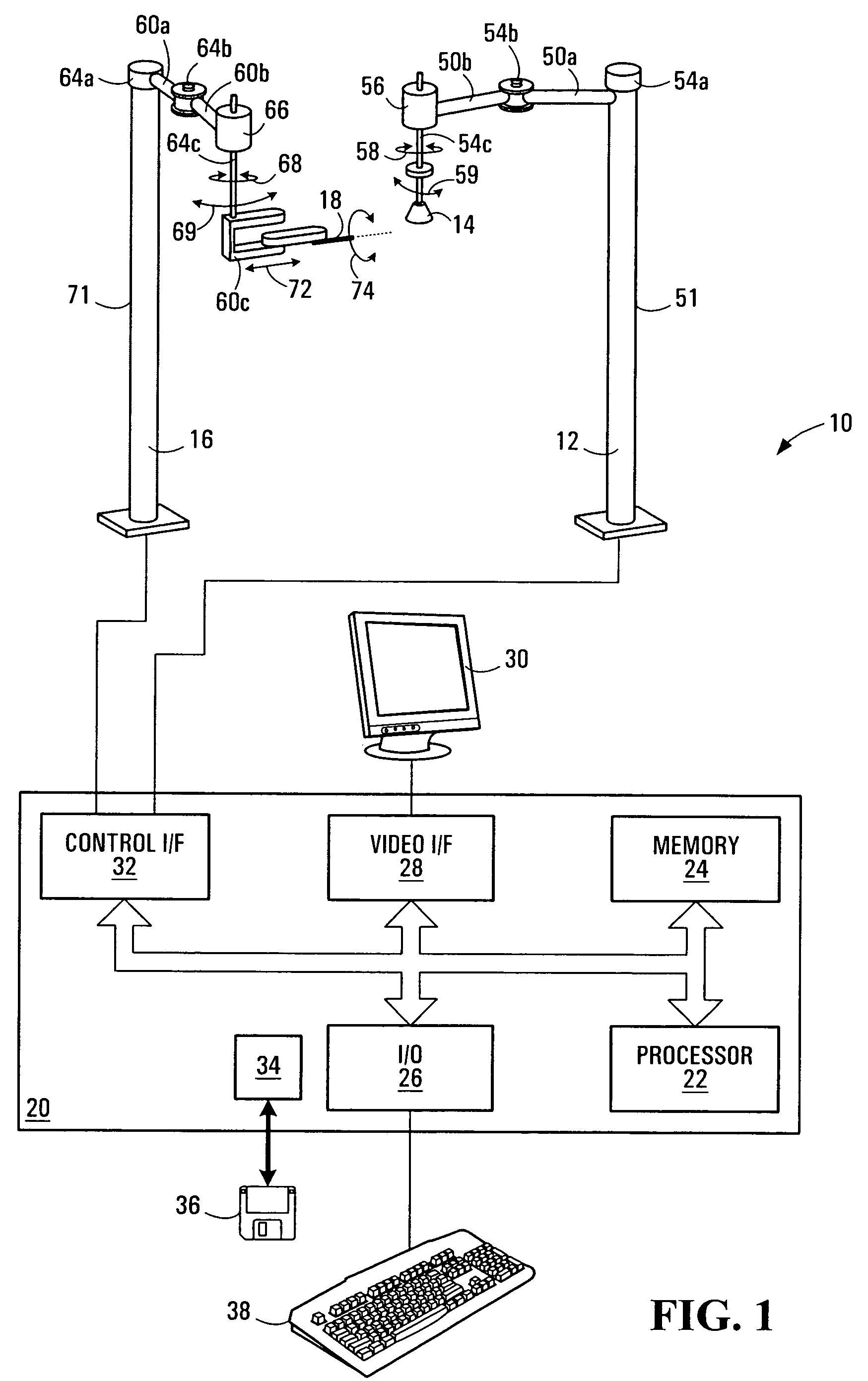Apparatus and method for removing abnormal tissue
a technology of abnormal tissue and apparatus, applied in the field of surgical equipment and methods, can solve the problems of limited biopsy method, limited excision of abnormality, limited biopsy method, etc., and achieve the effects of reducing scarring and deformation of remaining tissue, limiting the volume of tissue removed, and eliminating cost and risk
- Summary
- Abstract
- Description
- Claims
- Application Information
AI Technical Summary
Benefits of technology
Problems solved by technology
Method used
Image
Examples
Embodiment Construction
[0032]FIG. 1 illustrates an apparatus 10 for removing abnormal tissue from the breast of a patient, exemplary of an embodiment of the present invention.
[0033]In this context, the term “abnormal tissue” refers to tissue, which may be benign or malignant, and includes cysts, lumps, microcalcifications, spiculated masses, and asymmetric densities, and which may be palpable or non-palpable. Other abnormal tissue may be part of localized tumors, including carcinoma—in situ, such as Fibroadenomas, Phyllodes tumours, which are benign breast tumors in the glandular and stroma (connective), Fat necrosis (a benign condition where fatty breast tissue swells or becomes tender) as well as malignant breast tumours such as Lobular Carcinoma in situ (LCIS), Ductal Carcinoma in situ (DCIS), preferably at Stage-0 and I.
[0034]As illustrated, apparatus 10 includes a robotic imaging arm 12 for holding and moving an imaging probe 14; and a robotic surgical arm 16 for holding and moving a minimally invasi...
PUM
 Login to View More
Login to View More Abstract
Description
Claims
Application Information
 Login to View More
Login to View More - R&D
- Intellectual Property
- Life Sciences
- Materials
- Tech Scout
- Unparalleled Data Quality
- Higher Quality Content
- 60% Fewer Hallucinations
Browse by: Latest US Patents, China's latest patents, Technical Efficacy Thesaurus, Application Domain, Technology Topic, Popular Technical Reports.
© 2025 PatSnap. All rights reserved.Legal|Privacy policy|Modern Slavery Act Transparency Statement|Sitemap|About US| Contact US: help@patsnap.com



